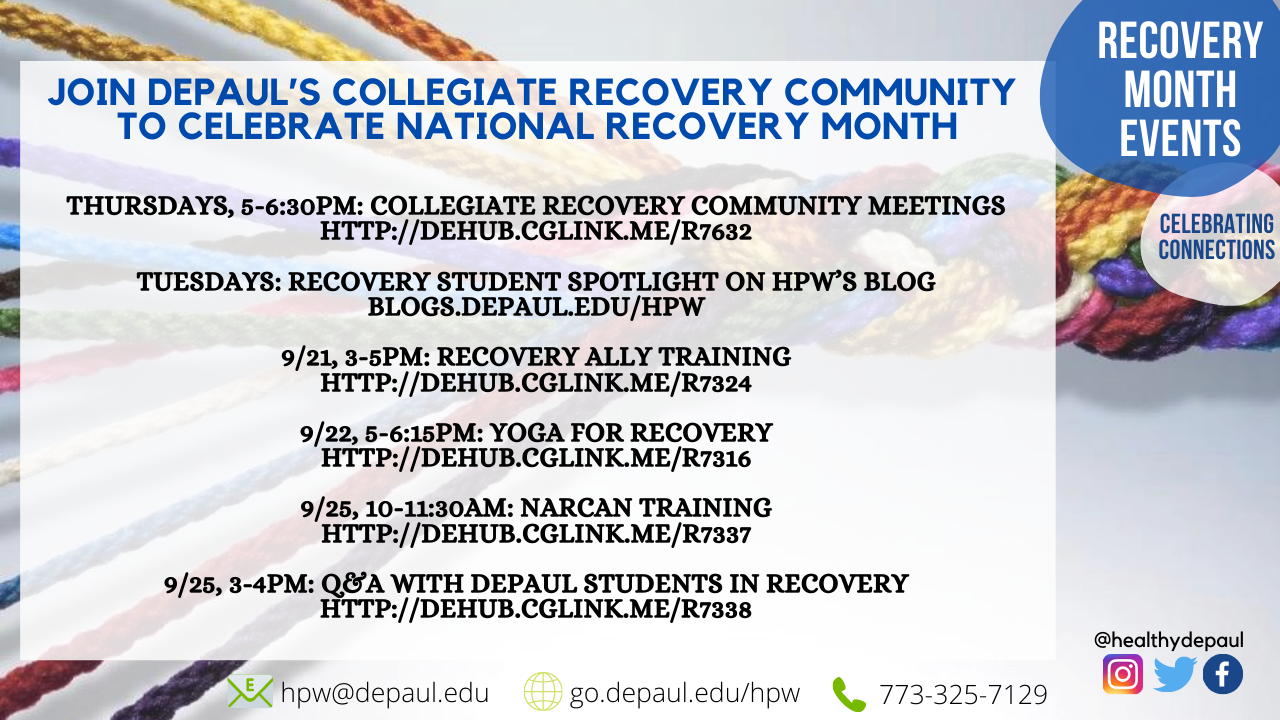 (Courtesy of Health Promotion and Wellness)
(Courtesy of Health Promotion and Wellness)September is notoriously the signal of the end of summer, the beginning of the autumn season and, of course, the start of a new academic year. For those of us who are guided more by the academic calendar, September evokes a variety of feelings; sadness, joy, excitement, anxiousness, worry and a host more of emotional and intellectual feelings and thoughts. These feelings may be especially high as we enter the sixth month of the coronavirus pandemic that has shaken the world.
Reflecting on the past months, we have learned a lot about ourselves, each other and the world surrounding us. For better or worse, we are in this together. There is no time like the present to remind you how important it is to continue to care for yourself: mind, body and spirit — but particularly our mental health in these difficult times.
If you don't know, September is also National Suicide Awareness Month, as well as National Recovery Month. Both of these awareness months remind us how important and precious our mental health and well-being is for us individually and as a community.
Keep in mind:
- Suicide is the second-leading cause of deaths for those aged 10-34 in the U.S.
- More young adults die from suicide than from cancer, heart disease, AIDS, birth defects, stroke, pneumonia and influenza, and chronic lung disease combined.
- 7 percent of students have “seriously considered suicide” in the past year.
- 90 percent of those who completed suicide had an underlying mental health condition.
To support yourself and others, know the warning signs of suicide or a mental health crisis. Please note, these are not all the warning signs but common signs to become aware of in yourself and others and when to call for help.
- Talking about hopelessness, worthlessness, being a burden to others, feeling trapped or having no reason to live.
- Having no motivation or losing interest in activities that were once enjoyed.
- Withdrawing or feeling isolated.
- Sudden change in personality or behaviors that are out of the norm for that person.
- Giving away possessions.
- Behaving recklessly, such as engaging more in substances, sexual activity or other high-risk activities.
- Talking about death, dying or not being here tomorrow.
- Looking for ways to kill oneself such as searching online or buying a gun.
If you or someone you know is exhibiting these signs: Take action immediately and always take it seriously. Tell someone you trust to assist you in taking action or call the
National Suicide Lifeline at (800)-273-TALK (8255). If you’re uncomfortable talking on the phone, you can also
text NAMI to 741-741 to be connected to a free, trained crisis counselor on the Crisis Text Line.
You can also call
University Counseling Services (773) 325-7779 or (312) 362-6923 and
Public Safety (773) 325-7777 in the event of a mental health crisis, for all DePaul students. For more resources visit the
Crisis Hotlines DePaul page.
It is important to get someone connected to professional mental healthcare as soon as possible. The sooner they get help and connected to resources, the more likely they will be able to recover and create activities, support and behavior change that supports their health and well-being.